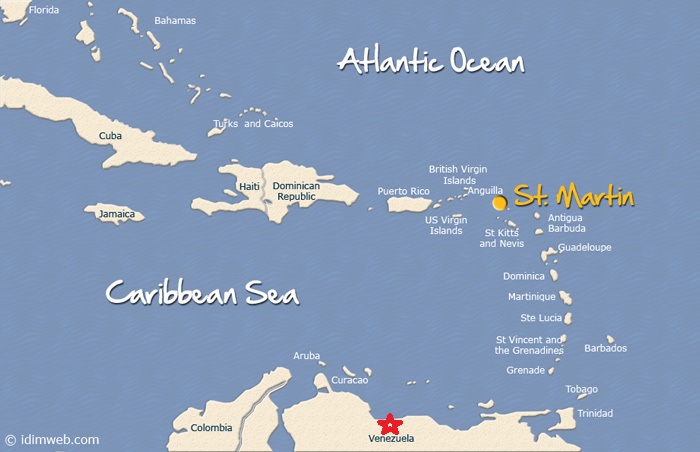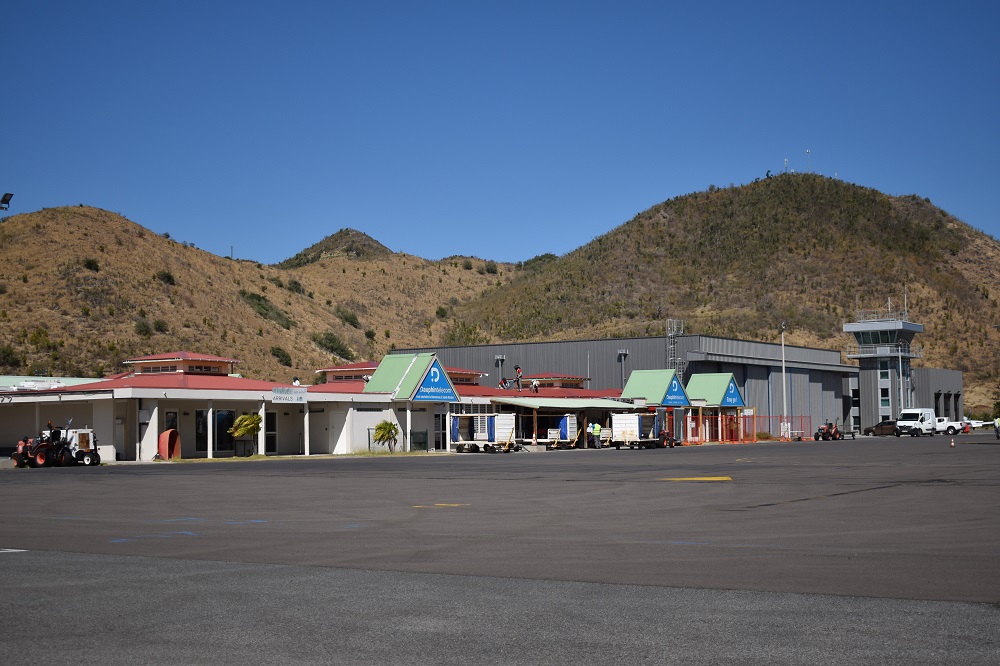Hundreds of illegal Venezuelans leave St. Maarten

PHILIPSBURG — Four months before the introduction of the planned visa requirement for Venezuelans in the Dutch Caribbean, more than half of the group of illegal Venezuelans on St. Maarten has left to return home on their own initiative. An estimated three hundred undocumented Venezuelan men remain on the island.
Santiago (41) is one of the very few illegal Venezuelans who landed at Grand Case-Espérance Airport twice; the first time in 2017 and the second time in October last year. He returned weeks before the Dominican Republic government introduced temporary visa requirement for Venezuelans.
“Like me, all of my friends in St. Maarten traveled via the Dominican Republic and then Guadeloupe to Saint Martin,” Santiago explains. “This is no longer possible. The only option is to travel from Colombia, but that is so much more expensive than before. None of the friends who has left St. Maarten can afford to come back.”
Dutch Minister of Foreign Affairs Stef Blok announced the temporary visa requirement on October 2nd last year in a letter to the Second Chamber of the Dutch Parliament. “Considering the necessary preparation time, the visa requirement will be introduced in about six months, in the second quarter of 2020. For reasons of practicability, the number of Venezuelan visa applications to be taken for the Caribbean Kingdom islands will be capped at 8,000 on an annual basis,” minister Blok stated.
With the visa requirement comes the introduction of a travel authorization system ESTA and the Advance Passenger Information system in which travelers’ information is checked in advance, as well as the introduction of pre-boarding checks. These measures have been developed in consultation with the prime ministers of St. Maarten, Curacao and Aruba, and are being prepared by each of the three Dutch Caribbean islands with the help of the Netherlands.
He has had a lot of luck, says Santiago, who traveled to Venezuela to accompany a friend who lost his eyesight during his stay in St. Maarten. Only thirty years old, he suffered retinal detachment in his right eye, after his left eye’s retina had become detached. Just like the other men, he worked in construction. One day the supervisor noticed that he was looking for tools by the touch, his arms stretched out in front of him. He got fired from the job immediately. “From that day on he sat alone in his room, crying, while we were out working,” says Santiago, who was part of a group of 19 men between the ages of 26 and 51. “I felt very sorry for my friend. He so desperately wanted an eye operation that he decided to sell one of his organs.” He asked his friends to ask around for a buyer and had them send messages through WhatsApp to people who he thought could help. The WhatsApp message ends with the question: “Do you know who might be interested in buying a lung or kidney so that I can return to Venezuela to be operated there and to buy food for my family?”
When help did not arrive, his Venezuelan friends in St. Maarten decided to save money to buy him a ticket, which took them five months. “By that time he could see nothing, I had to support him while walking and decided to accompany him home,” says Santiago. “The eye operation is free in Venezuela, but the problem is that there is no operation material, not even syringes. Only if you have dollars, you have a slight chance to get the necessary things.”

The second time he arrived at Grand Case-Espérance Airport, he was very scared, Santiago recalls. “A friend was waiting for me outside in his car. The entire trip to the Dutch side I was terrified because if the gendarmerie stops you, you will be arrested and deported. On the Dutch side it is the other way around: you can’t land by plane on the Dutch side, but once you are in the country, the police won’t arrest you – unless you cause serious trouble.”
St. Maarten truly is the Friendly Island, he emphasizes. “One evening one of my friends, who was very drunk, got into a fight with a Dominican. It was very rough. Someone called the police. The officer noticed immediately that the guy was super drunk, and asked: “Who is going to drive him home? Because he, for sure, can’t drive himself home.” In the meantime, myself and some others were freaking out as we all thought we were going to be arrested and deported.”
The troublemaker is no longer on island. Of the nineteen men, eight are still in St. Maarten. The others left before Christmas to spend the holidays with family. The remaining ones are making plans to try their luck elsewhere. Santiago was told by his employer that there is work for them in Canada. “First I need to earn the money I borrowed from a Venezuelan middle man for the ticket to get back to St. Maarten. If I don’t pay the amount plus interest back in time, I will be in a lot of trouble, and so will my family in Venezuela.”
###
Related articles:
Corruption follows the Venezuelan diaspora


























